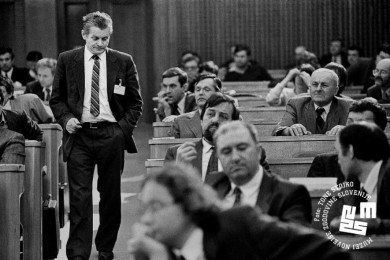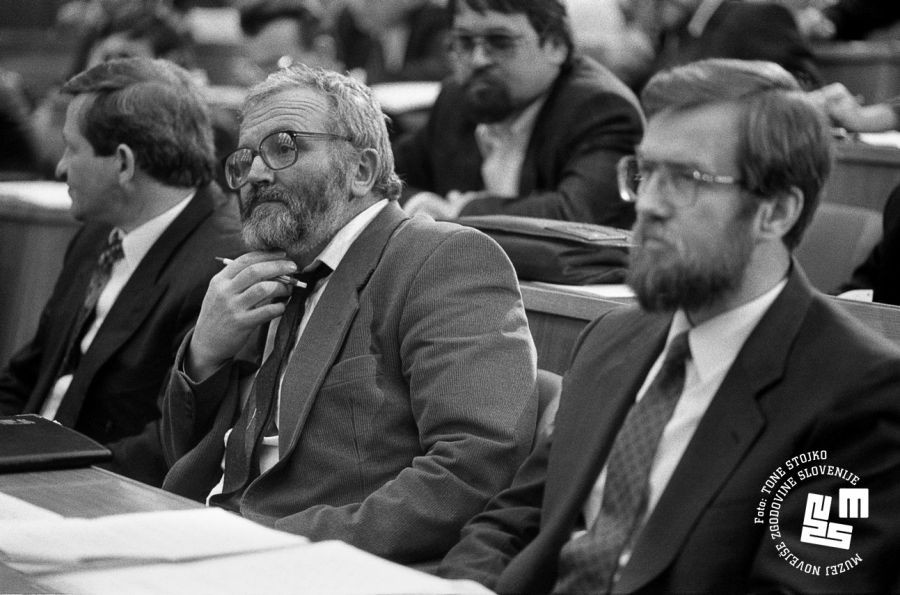15. 1. 1991: Conscientious objection and Milan Balažic (Party of Democratic Reform): »Time will tell«
At the relevant session, Janez Janša, Republic Secretary for People’s Defence, forwarded information to Milan Aksentijević, member of the Commission, that Slovenia and Croatia would no longer participate in the purchase and modernisation of the federal army’s military equipment.
"Time will tell"
The delegations of the Socialist Party of Slovenia and the Party of Democratic Reform met. Their presidents were Viktor Žakelj and Ciril Ribičič, respectively. The attendees discussed the enhancement of their mutual contacts, and better long-term and general cooperation in the Assembly.
The parties expressed their interest in a joint entry into the Socialist International, which was to be achieved by mutual efforts. Regarding the Constitution, the leaderships agreed that the highest legislative act be adopted by the start of the parliamentary recess, which should, according to the requirements of these two parties, define social protection at the level of the European Social Charter. The parties had different opinions about the changes in the Government. The socialists repeated their requirements for a reconstruction, while the reformers believed that DEMOS controlled the Government, and the replacement of ministers was a matter for the coalition.
At the end of the meeting, the parties convened a press conference at which Milan Balažic of the Party of Democratic Reform gave an interesting reply to the question of the formation of a left-wing alternative to DEMOS, "Time will tell."
The Presidency and the Government at cross purposes
In his editorial, Danilo Slivnik, the Delo newspaper’s Deputy Editor-in-Chief, described how the contents of the statements of the Presidency and the Government on the situation in the Gulf were entirely different, but he acknowledged that they were also intended for two different party blocs. It was evident from the Presidency’s statement that the governmental decision was subsequently corrected. This was, according to the author, evidence that the institutions functioned separately on several levels.
In his open letter to the public entitled "Slovenia, War and Peace", Franco Juri of the Liberal Democracy of Slovenia criticised the governmental decision on the assistance of the Republic of Slovenia to the "anti-invasion coalition", which implemented the UN Resolution in the Gulf by sending rescue and medical teams. Juri claimed that Slovenia was getting involved in an international military conflict and criticised the text of the decision because it failed to emphasise the initiative to resolve the crisis peacefully, which was proof of the impact of the governmental coalition’s "hawks".
He commended the public statement of the Presidency that corrected the governmental decision. Juri warned against the unconstitutionality of the governmental decision as the government should have based it on the position of the Assembly, which overlooked the initiative of his brother, Aurelio Juri of the Party of Democratic Reform, who had prepared such a draft resolution.
Juri completed his letter with a warning to the ministers, saying not to constantly improvise in foreign policy and engage in military games as amateurs. He advised the Government to suitably train competent republican secretaries to do their jobs.
Author: Jani Drnovšek
Similar articles
-
Triumphant Year of 1991
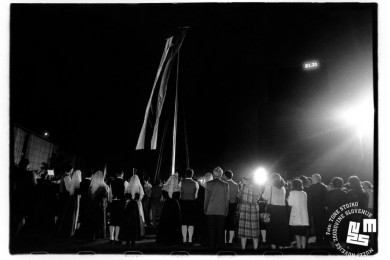
-
9. 5. 1991: Facilitated processing of independence laws
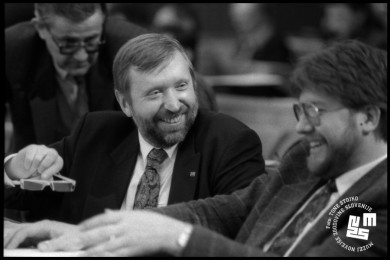
-
2. 3. 1991: Slovenians abroad and around the world in concern for Slovenia
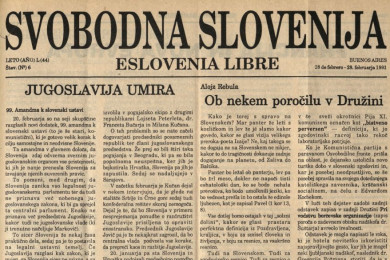
-
1. 3. 1991: Franco Juri against the transfer of conscripts to the Slovenian Territorial Defence
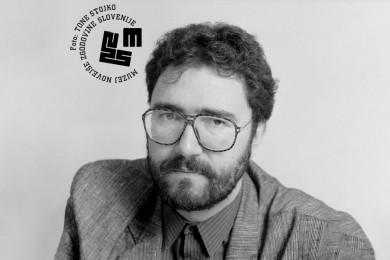
-
28. 2. 1991: Prepared defence and protection act proposal to ensure a plebiscite decision
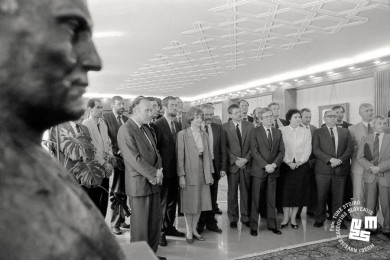
-
27. 2. 1991: The persistently looming red star
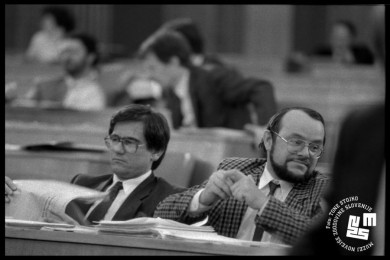
-
26. 2. 1991: A hopeless search for the Yugoslav modus vivendi
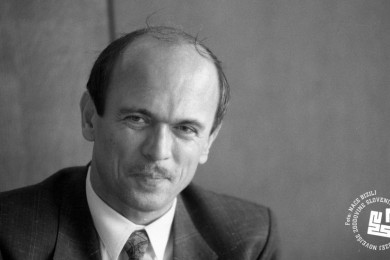
-
16. 2. 1991: Ciril Ribičič on the red star and reservations about the dissolution of Yugoslavia
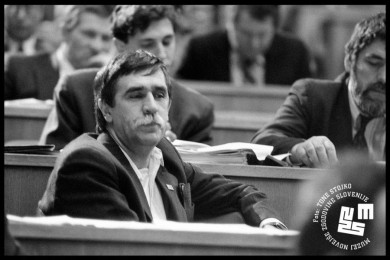
-
15. 2. 1991: Two thirds of respondents have faith in an independent Slovenia
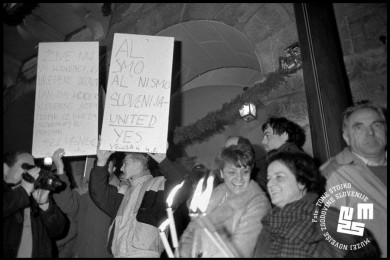
-
27. 1. 1991: Between a relaxation of tensions at home and a deteriorating situation in the Middle East
